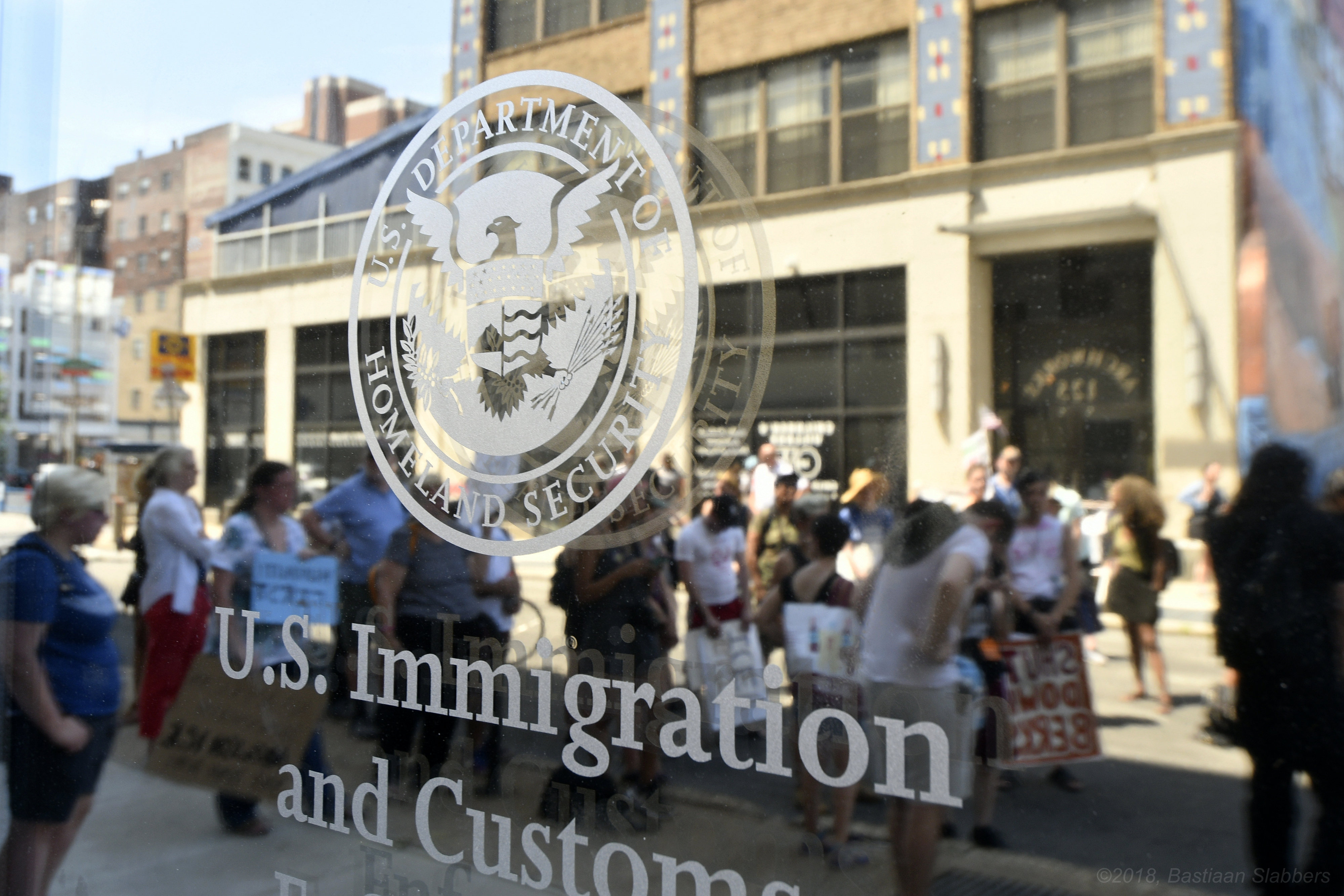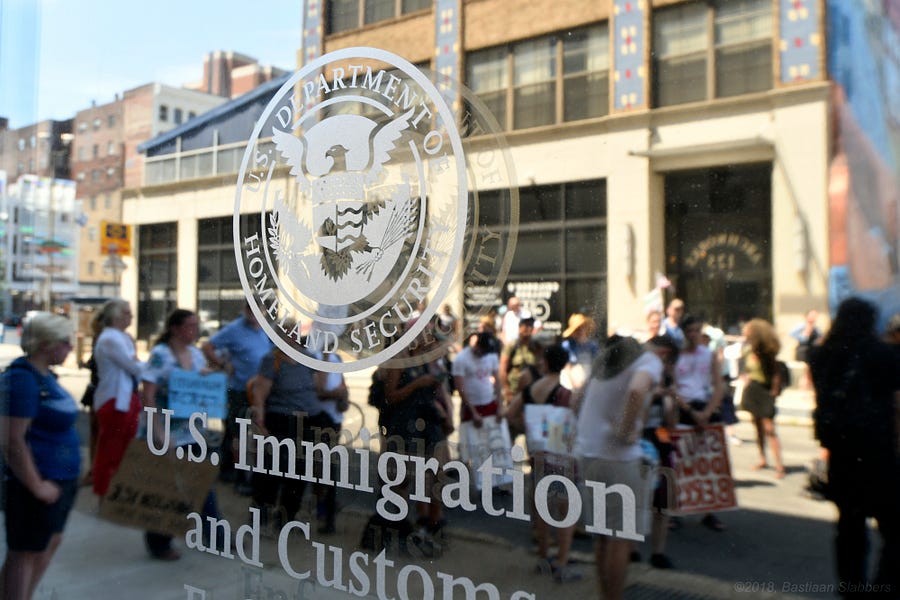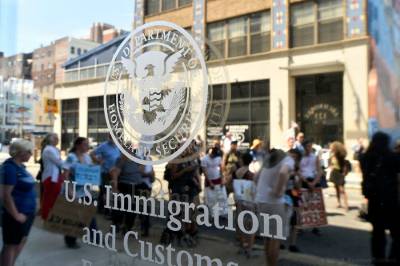Happy Wednesday! Thanks to all of you who tuned in to Dispatch Live last night with Jonah and Chris Wallace. If you missed the conversation—about Wallace’s new book, Countdown 1945—you can check it out at your convenience here, password: dingo.
If you don’t have time for the whole hour, we’ve conveniently summarized the last 30 seconds for you:
“I read a few newsletters in the morning, the last thing I thought I needed was a new newsletter. But The Dispatch is can’t miss—and I’m serious—I think it’s well-written, it’s smarter than the others, and it’s a great companion.” — Chris Wallace, Fox News Sunday
Quick Hits: Today’s Top Stories
As of Tuesday night, 2,346,937 cases of COVID-19 have been reported in the United States (an increase of 34,940 from yesterday) and 121,224 deaths have been attributed to the virus (an increase of 822 from yesterday), according to the Johns Hopkins University COVID-19 Dashboard, leading to a mortality rate among confirmed cases of 5.2 percent (the true mortality rate is likely much lower, between 0.4 percent and 1.4 percent, but it’s impossible to determine precisely due to incomplete testing regimens). Of 28,065,065 coronavirus tests conducted in the United States (511,484 conducted since yesterday), 8.4 percent have come back positive.


European Union officials are considering imposing a travel ban against Americans, per the New York Times, citing the United States’ coronavirus strategy shortcomings as a major public health threat to the region.
Dr. Anthony Fauci told a House committee on Tuesday that “it will be when and not if” there will be a coronavirus vaccine, adding that he remains “cautiously optimistic” that several will be available by the end of 2020. Fauci added that, to the best of his knowledge, neither he nor his colleagues “have ever been told to slow down on testing.”
In an 8-1 ruling, the Supreme Court limited the Security and Exchange Commission’s ability to seek damages from fraud defendants exceeding their profits obtained through the wrongful conduct.
Seattle Mayor Jenny Durkan told reporters the city will begin to dismantle the Capitol Hill Autonomous Zone—or CHAZ—after two shootings over the weekend, one fatal. “We can still accommodate people who want to protest peacefully, come there and gather. But the impacts on the businesses and residents and community are now too much.”
An FBI investigation found that the “noose” discovered in black NASCAR driver Bubba Wallace’s garage on Sunday had been there as early as October 2019; Wallace was not assigned to that garage until last week. “We appreciate the FBI's quick and thorough investigation and are thankful to learn that this was not an intentional, racist act against Bubba,” NASCAR said in a statement.
After weeks of negotiation between owners and the player’s union, Major League Baseball is back. Players are en route to training camp 2.0, and have signed on to a 60-game season—albeit one including a National League DH and expedited extra innings—beginning July 24.
Breaking Down the Trump Administration’s New Immigration Restrictions

In keeping with its longstanding restrictionist approach to immigration, the Trump administration announced a new executive order earlier this week suspending a variety of immigrant worker visas through the end of 2020. The goal, according to a White House press release, is to “ensure we continue putting American workers first during our ongoing coronavirus recovery.”
The executive order—set to take effect today—will restrict H-1B visas for high-skilled workers in industries like tech and consulting, H-2B visas for seasonal workers in non-agricultural jobs, J-1 visas for short-term workers like au pairs and cultural and educational exchange students, and L-1 visas for workers making internal transfers from their employer’s foreign offices.
“The sum total of what these actions will do in terms of freeing up jobs over the course of the rest of 2020 is about 525,000 jobs,” said a senior spokesman for the Trump administration in a Monday press call. The decision, the spokesman said, was based on “an explicit concern for the people at the margin of the economy—what the president calls the people who are first out and last in. And those are some of the people he’s most concerned about, and those are some of the folks, in some of these visa categories, who will see some of the competition ease economically for certain job positions.”
The move may be a political winner—65 percent of respondents in a late-April Washington Post/University of Maryland poll supported “temporarily blocking nearly all immigration into the United States during the coronavirus outbreak”—but some experts suggest the executive order will harm the country’s coronavirus recovery. “If the point is to help the economy, then it doesn’t make a whole lot of sense,” says James Pethokoukis, an economist at the American Enterprise Institute. “It assumes that there’s only so many jobs to go around and that we therefore have to limit the labor market to preserve those jobs for people who are already here right now. But that certainly isn’t true. Immigrants generate jobs, through both demand and the skills they bring to the labor market and the U.S. economy.”
“We’ve actually tried versions of this in the past during downturns. It hasn’t really worked,” Pethokoukis added. “So I find it hard to believe that any economists in the administration wrote the economic justification for this move. It sounds like it was written by a political person. It would just be hard to find too many economists who say, ‘Yeah that’s great. Let’s keep out immigrants. That will help the economy.’”
For others, the expansive visa restriction was personal. “I’m afraid to travel out of the country and be shut out, and I’m afraid the administration will rescind the work authorization I am currently on,” says Daniel Di Martino, an immigrant from Venezuela who is beginning a Ph.D. program for economics at Columbia University next year. “I am the kind of person this order and these policies are affecting: Very qualified top students who come to benefit America with our skills and effort. This is an anti-American policy. This country was built by immigrants, and we are all descendants of immigrants one way or another. Shutting America’s doors to the world’s most skilled people is wrong and terrible for the economy.”
Leaders in the business community also panned the move, arguing the restrictions—particularly those on H-1B visas for high-skilled workers—would slow an already-sluggish economic recovery by making it significantly more difficult to fill important positions. U.S. Chamber of Commerce CEO Tom Donohue called the proclamation “severe,” arguing that “putting up a ‘not welcome’ sign for engineers, executives, IT experts, doctors, nurses and other workers won’t help our country, it will hold us back. Restrictive changes to our nation’s immigration system will push investment and economic activity abroad, slow growth, and reduce job creation.”
The tech sector condemned the executive order through its trade group, the Internet Association. “The diverse and accomplished H-1B visa holders in the U.S. create American jobs and help our economy grow,” the statement reads. “All industries benefit from a visa system that allows U.S. companies to attract the best and brightest no matter where they’re from.”
Democrats were predictably opposed to the measure: “President Trump’s latest executive order suspending immigration is both an abuse of his executive power and a politically motivated attempt to shift blame,” Rep. Jerry Nadler argued. The Republican response was largely muted, though Rep. Mo Brooks cheered President Trump for putting an end to “importing cheap foreign labor.”
Regardless of political debates over the issue, Pethokoukis says, the economic data is quite clearly in support of a relatively permissive immigration policy. “If you look at the forecasts, the U.S. is going to be embarking upon a period of historically slow growth, and that’s because of weak productivity,” he says. “So we want people to have the kind of skills that can boost productivity and innovation, people who want to start businesses, people who want to do cutting edge, breakthrough scientific research. We should be making ourselves as attractive as possible for those kinds of people. We want to make this a more productive and innovative economy, and keeping out productive, innovative people has exactly the opposite effect.”
Democracy Soldiers On
If last night’s primaries were any indication, representative elections under threat of coronavirus are unlikely ever to make for very good TV.
The primaries that took place in New York, Kentucky, and Virginia last night were not harried by many of the problems of earlier elections this year in Georgia and Wisconsin, with short-staffed precincts struggling to work through lines of voters in a timely way. Enormous quantities of ballots—as many as half of those cast in New York—were cast by mail, in order to cut down on potential viral transmission.
Yet a downside of this approach made itself apparent too, as ballot-watchers quickly declared dozens of primaries too close to call until absentee votes can be tallied, a process that can take up to a week.
The outcome of some races was plain. Rep. Alexandria Ocasio-Cortez won her first primary as an incumbent, fending off a challenge from a more moderate Democrat backed by the U.S. Chamber of Commerce. And in Mark Meadows’s old district in North Carolina, a 24-year-old outsider named Madison Cawthorn captured a surprise upset over the Trump-endorsed putative frontrunner, Lynda Bennett. (Cawthorn will turn 25, the required age for members of Congress, in August.)
Other races, like the Democratic Senate primary in Kentucky, remain in flux. Amy McGrath, a well-funded former fighter pilot who the Democratic establishment hopes could unseat Majority Leader Mitch McConnell this year, is trying to fend off a primary challenge from Charles Booker, an African American progressive whose campaign got a huge boost in recent weeks during the anti-racism protests following the deaths of George Floyd and Breonna Taylor. And Eliot Engel, a long-serving House member from New York City, is trailing challenger Jamaal Bowman, who was endorsed by Ocasio-Cortez.
The Future of Work in a Post-Pandemic Age
With New York entering Phase 2 of coronavirus reopening earlier this week, hundreds of thousands of New Yorkers were permitted to return to their office buildings on Monday for the first time since March. But that doesn’t mean they all did. Nearly 70 percent of respondents in a recent Gallup survey reported working remotely during the coronavirus pandemic, and only 26 percent of those who did said they wanted to return to the office once they were allowed. Half of those working from home—49 percent—claimed to prefer their new setup.
New COVID-19 cases are outpacing testing in several regions around the country, but states and localities across the United States are forging ahead with reopenings of varying speeds. Employers in this post-lockdown world are scrambling to determine: Were the past three months a temporary corporate staycation? Or are we in the dawn of a new era of work?
Several Fortune 500 companies seem to be operating under the assumption it’s the latter. The COO of UBS Group AG announced this week that up to a third of the Swiss investment bank’s workforce could work from home in perpetuity. Twitter CEO Jack Dorsey emailed employees in mid-May letting them know they could work remotely as long as they’d like—even after the coronavirus pandemic fades—and Mark Zuckerberg made the same call at Facebook a few days later.
The number of components that factor into decisions like these are endless, but chief among them is real estate expenditures. “As we head into a recession or economic downturns, all eyes are going to be on the opportunity for reducing cost,” said Kate Lister, president of Global Workplace Analytics. “And those big empty offices sitting out there are going to be a beacon for the C-Suite.”
Although many managers originally feared that the transition toward remote work would reduce efficiency and output, studies have found most people are just as productive remotely as they are in the office. Employees working from home at Ctrip—a Chinese travel agency—saw a 13 percent spike in performance, per Stanford economist Nicholas Bloom. “Home workers also reported improved work satisfaction, and their attrition rate halved.” (We told you we were working, Steve!)
All this doesn’t mean offices will be phased out of existence entirely—in-person interactions and social relationships are key contributors to overall job happiness. “There is something to be said about having people together when it comes to brainstorming, when it comes to looking at body language, when it comes to building relationships, closing deals,” James Morgan—author of four books on the future of work—told The Dispatch. A hybrid approach could soon become the gold standard.
“I don’t think the office is dead, but I do think that the suburban commute is probably on its last legs,” said Benjamin Pring, Director of the Center for the Future of Work. Pring believes the office will become more of a social space, where employees make the trek in only when they need to interact with their colleagues. “You won’t go in just routinely to look at your computer or look at your phone.”
That, of course, we can do from home. And as much of a godsend Slack and Zoom have been these last several months, Vivek Wadhwa of Harvard Law School’s Labor and Worklife Program believes these tools will pale in comparison to what’s coming next. “The next leap forward really is when we wear glasses that turn dark and take us into holographic worlds,” he said. Within two or three years, he believes, the technology will be there to allow us to simulate face-to-face interactions with colleagues or coworkers.
Worth Your Time
How do you engage in an argument with someone who presupposes the moral imperative of their position? The answer: you don’t. In his latest piece for Tablet Magazine, Jacob Siegel mourns the demise of debate in our new intellectual era of virtue signaling and identity politics. By fusing the language of rational discourse with the authority of religious commandment, progressives effectively cast off opposing viewpoints as anti-science, irrational, and immoral. And America’s most hallowed institutions have followed suit. “What we are witnessing, in the rapidly transforming norms around race, sex, and gender, is not an argument at all but a revolution in moral sentiment. In all revolutions, the new thing struggling to be born makes use of the old system in order to overthrow it,” he writes, “At present, institutions like the university, the press, and the medical profession preserve the appearance of reason, empiricism, and argument while altering, through edict and coercion, the meaning of essential terms in the moral lexicon, like fairness, equality, friendship, and love.”
Texas Hold’em has been a reprieve for many bored homebodies during quarantine. But for a select few, poker is more than just a hobby—it’s a career. Maria Konnikova spent nearly a year learning tips and tricks from Erik Seidel, one of the one of the world’s best professional poker players. The Atlantic published an excerpt of her book detailing her journey from amateur to World Series of Poker. (Disclaimer: This piece contains some strong language, and may make you want to gamble!)
Finally, from Josh Kraushaar at National Journal comes a grim warning for Donald Trump. If the election were held today, the president would lose in a landslide. Trump has lost support among several of the groups that drove his unlikely triumph in 2016, including rural voters, evangelicals and self-described conservatives. Says Kraushaar: "Meanwhile, the Trump campaign is airing ads in Iowa and Ohio, two states he won by near double-digit margins in 2016, as recent polls show Trump in precarious shape in both states. Public polling even shows Biden within striking distance in Georgia and Texas, two electoral prizes that would normally be safely Republican ... unless a big blue wave hits in November."
Something Magnificent
Presented Without Comment
Presented Without Comment
Toeing the Company Line
Once upon a time, the United States had three branches of government. Before the legislature voluntarily ceded its power to the Supreme Court, culture war issues were decided through lawmaking by representative bodies. In yesterday’s French Press (🔒), David atones for his past contributions to our increasingly juristocratic society during his time as a civil liberties attorney. “You can blanket the country in litigation,” he writes, “And that’s exactly what we did.”
In a Dispatch Fact Check, Alec analyzed several tweets and Facebook posts misconstruing the history of the Aunt Jemima label that went viral after Quaker Oats decided to discontinue the logo. “Given what is known of Nancy Green’s life and of what records of it exist, social media posts downplaying the racist nature of the Aunt Jemima brand rely on factually incorrect information and fabrications for which there is no record.”
On the site today, Danielle Pletka details some of the aggressive moves China has made toward Australia after its prime minister called for an investigation into China’s mishandling of the coronavirus at the pandemic’s outbreak, and explains why Americans should be concerned.
Let Us Know
Those of you finding yourself working from home post-coronavirus and loving it—what’s been your favorite aspect? Those of you itching to get back to the office—what do you miss the most?
Reporting by Declan Garvey (@declanpgarvey), Andrew Egger (@EggerDC), Sarah Isgur (@whignewtons), Charlotte Lawson (@charlotteUVA), Audrey Fahlberg (@FahlOutBerg), Nate Hochman (@njhochman), and Steve Hayes (@stephenfhayes).
Photograph by Bastiaan Slabbers/NurPhoto/Getty Images.







Please note that we at The Dispatch hold ourselves, our work, and our commenters to a higher standard than other places on the internet. We welcome comments that foster genuine debate or discussion—including comments critical of us or our work—but responses that include ad hominem attacks on fellow Dispatch members or are intended to stoke fear and anger may be moderated.
With your membership, you only have the ability to comment on The Morning Dispatch articles. Consider upgrading to join the conversation everywhere.